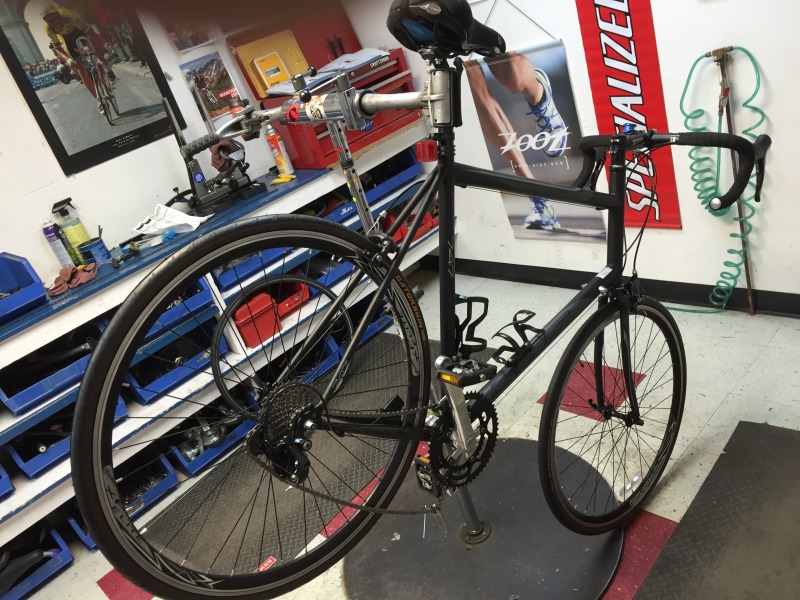Fix it yourself!
In 1975, I turned 16 and got my driver's license, which was a very significant event for me as a teenager in Los Angeles. I went to the DMV on my 16th birthday, and passed my test with a 97. My one mistake was some little thing about turning on a blinker. Hmmmm, still forget to do that sometimes. Later that year, I bought my first car. It was a 1966 Ford Mustang. Do I regret not keeping that car? You bet. The body was in great shape, but as with all cars, especially at that time, mechanical repairs were needed. My mother had taken a class in auto repair, so she and I set out to a series of major overhauls for this Mustang, which included a new engine. Yes, you read that right. My mother and I installed a new engine into that Ford. It was a straight-6 cylinder, and in those days, you could actually do this kinda work on a car. Today, not possible.
Forty years later, I'm able to do some basic work on my motorcycle, but for some reason when I started cycling last year, the repair and maintenance of my bicycle seemed a bit confusing. So, I did what most over-educated people do, I took a class.
This winter I set aside 3 days for continuing education. (Don't fret, I used my own money, and did this on my days off) We covered the whole bike, from top to bottom, from cleaning to adjustments, repairs and replacement of parts. My instructor was Ed, who is a lifer in this business. He knew about bikes going back to the time before I got my Mustang, and rode a ten speed schwinn around the San Fernando Valley. I shoulda kept that bike too, along with the Mustang.
Why learn how to fix it yourself? Why not just drop the bike off at the local bike shop once a year for a tune up? Different people have different reasons. Here are mine:
First. I find that the work I do now as a bishop involves lots and lots of things that cannot be fixed. For a guy who is a doer, and has a bias for action, this has been the single most frustrating aspect of my now not-so-new calling. The irony is people think that because I am a bishop I've got all kinds of power, influence and authority to fix things. Nope, it don't work that way. So, the prospect of being able to fix my bicycle when the tire is flat, the chain needs replacing or the brake pads are shot is, well, very appealing.
Second. Most of my life and work involves people. Here is the thing about people, in case you have not learned about this yet. People are full of contradictions, joys & heartaches, self-delusion, hopes & dreams, irrational exuberance, petty myopic thinking, glorious cheerfulness and a whole litany of characteristics. 87.3% of the time, I enjoy getting in this muddle mix, but there are times when I just want to interact with some steel screws, rubber tires and aluminum cranks.
Third. Grease is good. Getting dirty, sweaty, grimey is a concrete reminder that life is gritty. Working on a bike, or a car, or motorcyle, or even in the dirt of a garden, if that's your thing, is an external verification that each of us are a part of the stuff of this earth - this creation. We are not above it, we are not better than others, no, we are all gritty grimey creatures in need of redemption. In a sense, the work of cleaning the sand out of gears is a sort of confessional booth for me. Yes, there is liturgy in the repair business.
Fourth, and finally. I think it's essential in an increasingly specialized world, where the temptation (heck reality) of living in silos needs to be countered. If you are in ministry, you've got to get out of your church stuff, and have something else. If you are in finance, you need to go to the opera. If you are in real estate, you need to take up pottery. Odds are, that after you've learned the essentials of your field, you will benefit more from some cross fertilization.
That's it, sermon done. Off to go fix something, Hah.



